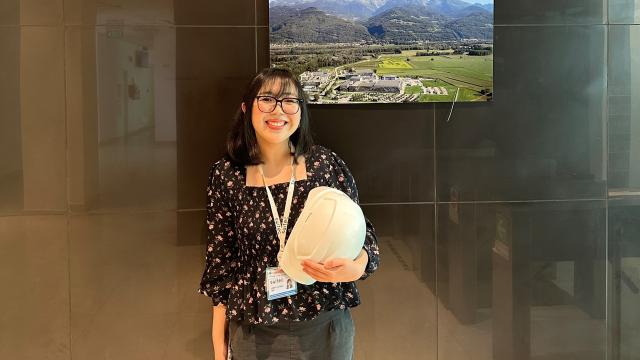SIT partners the Singapore Army to boost the engineering skills of Army personnel through micro-credentials.

(From left to right) Mr Bill Chang, Chairman, SIT; Professor Chua Kee Chaing, SIT President; Military Expert 7 Tan Mu Yen, Commander, Combat Service Support Command; and Major-General David Neo, Chief of Army, at the Army-SIT MOU signing ceremony. (SIT Photo: Keng Photography/Tan Eng Keng)
To enhance the Singapore Army (Army) servicemen’s and women’s engineering skills and expertise, an exciting collaboration has emerged between the Singapore Institute of Technology (SIT) and the Army. As part of this partnership, SIT and Army will identify Army’s engineering training needs and match them with SIT courses, which include micro-credentials, competency-based stackable degrees, and postgraduate certifications, among others.
This collaboration marks a significant milestone as it is the first time the Army is embarking on a model of education known as the Competency-based Stackable Micro-credential (CSM) Pathway, designed for regular servicepersons to hone specific competencies in areas required by the Army. Through the CSM pathway, servicepersons can stack multiple micro-credentials towards an SIT degree, fulfilling their personal aspirations and enhancing their career outcomes. In addition, the CSM pathway also provides recognition of prior learning (RPL), which recognises the relevant education and work experience of the learners.
Selected Army servicepersons are able to apply for RPL for competency units within a micro-credential or course. Unlike traditional RPL that might credit only past coursework, SIT’s RPL framework will allow learners to use their work experiences or educational certificates, like an advanced or specialist diploma, or industry-relevant certificates such as Project Management Professional (PMP) and Lean Six Sigma Black Belt (LSSBB). These micro-credentials can be stacked toward an SIT degree, after meeting graduation requirements.
This collaboration goes beyond the scope of traditional education to support an environment conducive to continual learning and skill enhancement. This covers the sharing of knowledge, best practices and latest technological knowhow.

SIT key attendees and Singapore Armed Forces Commanders. (SIT Photo: Keng Photography/Tan Eng Keng)
"I want to record our sincere thanks to the Army for giving SIT the opportunity to support its manpower transformation and training needs. We will work with the Army to map our micro-credentials to its Expertise Development Framework for Engineers so that they are a relevant and up-to-date part of its staff career development programme. Working closely with major industries and agencies to maximise the potential of their staff is very close to SIT’s heart and so we deeply cherish this opportunity," said Professor Chua Kee Chaing, SIT President.
“We are very excited to partner SIT to re-design how we upskill our Army Engineers. Amidst the national push towards lifelong learning, the continuous learning and adult learning space has transformed significantly, something that SIT has been at the forefront of. The proposed Competency-Based Stackable Micro-Credential pathway allows our Army Engineers to earn micro-credentials that stack to industry-recognised degrees, and to do so at a sustainable pace. Recognition of prior experience and learning provides an effective and targeted learning experience, making it better than before for our people to upskill themselves, and allows the Army to reskill and upskill our people at scale and at speed,” said Major-General David Neo, Chief of Army, Singapore Army.
Enhancing Army’s Engineering Training
This partnership would enhance Army’s engineering capabilities, fostering the development of skilled engineers with the competencies to ensure the long-term maintenance of Army’s equipment fleet and shape future plans.
“By incorporating RPL and micro-credentials into a degree pathway, this initiative empowers Army servicepersons with recognised qualifications while achieving just-in-time and flexible learning, which are key to strategically addressing future workforce challenges and demands,” said Associate Professor Kenneth Low, Cluster Director of Engineering, SIT.
Learners can sign up for individual micro-credentials in areas like Data Analytics & AI for Engineers, and Operational Excellence to equip the learners with in-demand skills in data processing and visualisation, allowing them to harness technologies to improve the performance of engineering systems. Each micro-credential will comprise the necessary science, mathematics and engineering knowledge that are contextualised in the engineering function, allowing learners to master the skill competencies through real-life engineering applications and innovation projects.
The CSM pathway focuses on job-specific skills and the practical application of knowledge, and is designed for adult learners who wish to upskill or reskill themselves while working full-time. As a result, they can adopt new technology or pick up new skills to take on larger roles in their organisations.
The benefits of this partnership are multifaceted. It provides Army servicepersons with an alternative degree pathway, and fosters lifelong learning and professional growth, equipping them with accredited qualifications that are recognised in both military and civilian spheres.
A Collaborative Effort

Attendees at the Army-SIT MOU signing ceremony. (SIT Photo: Keng Photography/Tan Eng Keng)
SIT will tailor the programmes to meet the needs of Army, based on the skills and knowledge required for specific roles. Army will contribute to curriculum development by providing feedback on course content, and suggestions on real-world case studies and projects. This involvement helps ensure that the curriculum is up-to-date, relevant, and in line with industry expectations. All learners will be exposed to actual work in real-world settings. Together with SIT, Army will assess the learners’ demonstrated competencies at their workplaces.
This collaboration creates a synergy between academia and Army, encouraging the exchange of knowledge and expertise that benefits both sectors.
![[FA] SIT One SITizen Alumni Initiative_Web banner_1244px x 688px.jpg](/sites/default/files/2024-12/%5BFA%5D%20%20SIT%20One%20SITizen%20Alumni%20Initiative_Web%20banner_1244px%20x%20688px.jpg)


